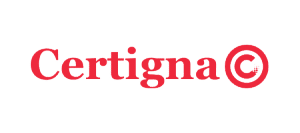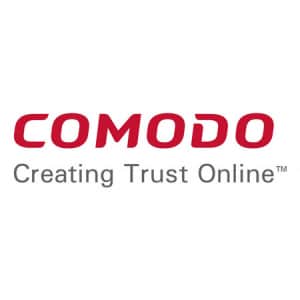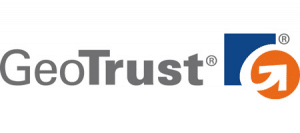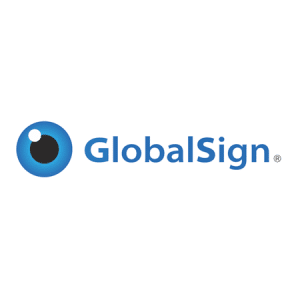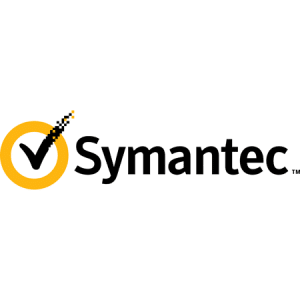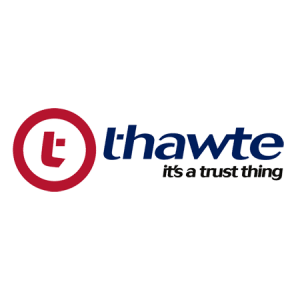All of our SSL server certificates are issued by certification authorities that comply with the WebTrust standard, and use full three-factor validation. We work primarily with certification authorities such as Symantec, Thawte, Comodo, GeoTrust and Chambersign
WHAT IS AN SSL CERTIFICATE USED FOR?
SSL certificates are use to encrypt data communications sent via the internet and to authenticate websites through which internet users communicate.
SSL CERTIFICATE RANGE
Standard, EV, UCC and Wildcard certificates use different methods to authenticate connections to your information system, and to secure transactions from or to your online services.
THREE-FACTOR VALIDATION MINIMUM PREREQUISITES
According to their validation type, SSL certificates fulfil their essential functions more or less effectively, i.e. encryption and authentication.
CRITERIA FOR SELECTING A SUITABLE SSL CERTIFICATE
The choice of SSL certificate depends on the services to be secured and authenticated.
A FULL RANGE OF SSL CERTIFICATES
Our range of SSL certificates comprises several hundred options, which all use three-factor or EV validation.
WE GUARANTEE A PERSONALIZED SERVICE WITH HIGH ADDED VALUE
In keeping with our ethos as a high added value provider, our service covers all of the steps required to set up an SSL certificate.
Direct access to our pricing grids by authority and certification type
For direct access to our selection of SSL certificates and to order your product online:
An SSL (Secure Sockets Layer) certificate, also known as Transport Layer Security (TLS), is created using a internet communications security protocol. An SSL certificate certifies a company’s identity and ensures that data exchanged through the internet is encrypted.
WHAT IS AN SSL CERTIFICATE ?
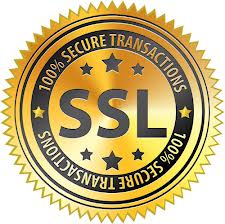
Using SSL mode enables internet users to identify the owner of the website they are visiting, as well as confirming that this owner really existed on the date on which the certificate was issued and ensuring that data exchanged through the site is encrypted.
The main purpose of an SSL certificate is to authenticate the company that uses it. Authentication is performed by a reputable certification authority which issues keys to set up encrypted connections, in order to secure:
- Web pages,
- Forms that display or send sensitive or confidential data such as bank card numbers or private data (medical information, personal contact details, passwords etc.),
- Company data.
Using an SSL certificate ensures that all of this data is sent in a secure and encrypted environment. Setting up an SSL system will reassure web users and improve the efficiency of your website (form filling, online purchases etc.)
Another reason to install an SSL certificate is Article 34 from the CNIL (French Data Protection Authority – Commission nationale de l’informatique et des libertés), which states that IT professionals must secure databases and personal or financial data during transit.
This law states that the data processing manager is personally responsible for ensuring the security and confidentiality of data in order to uphold the privacy of the persons in question. It is therefore crucial to protect your data communications.
SSL PROTOCOL
The SSL (Secure Sockets Layer) protocol is based on complex symmetric and asymmetric encryption algorithms (public and private key cryptography). It is used to set up a session between a web browser and a server hosting a secure website.
The SSL certificate enabling this session to be opened is issued by a certification authority, after the authority has completed a strict audit corresponding to the authentication factor by which the certificate in question is covered.
The SSL certificate enabling this session to be opened is issued by a certification authority, after the authority has completed a strict audit corresponding to the authentication factor by which the certificate in question is covered.
HOW AN SSL CERTIFICATE WORKS
The session is essentially opened in the following way: after your request has been sent, your internet browser asks the web server that you are going to connect to to authenticate itself.
The server provides a copy of its SSL certificate in response. On receipt of the cert the browser analyses its compliance and checks that it has not been revoked.
When this check is complete, the browser sends a positive response to the server. Once the browser has issued its acceptance, the web server validates the process and sends a digital signature to confirm the launch of the session.
It is only once this process has been finalized that the session is active and transactions are encrypted.
The server provides a copy of its SSL certificate in response. On receipt of the cert the browser analyses its compliance and checks that it has not been revoked.
When this check is complete, the browser sends a positive response to the server. Once the browser has issued its acceptance, the web server validates the process and sends a digital signature to confirm the launch of the session.
It is only once this process has been finalized that the session is active and transactions are encrypted.
HOW TO CHOOSE AN SSL CERTIFICATE ?
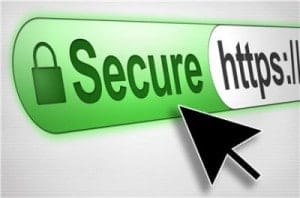
The choice of SSL certificate depends precisely on which services need to be secured and authenticated, together with the technical and application environment in which the certificate will be deployed.
The factors used to select an SSL certificate are linked to the services need to be secured and authenticated, together with the technical and application environment in which the certificate will be deployed.
It is crucial to fully analyze your needs, objectives sought, and the technical environment in which the certificate will be installed according to these significant constraints. All of these elements will be instrumental in putting together a request to submit to the chosen certification authority.
When you have established the prerequisites, we can offer you SSL certificates to cover the services you wish to secure and authenticate. We can then submit your request to the certification authority.
WEBSITE CATEGORY
On what type of website do you wish to set up a secure and authenticated https connection? Is it an e-commerce site, information, statistics etc.?
SECURING A SINGLE DOMAIN
Will the certificate secure a single domain (www.)domain.com or several websites linked to the sub-domains of one primary domain (*.domain.com) ?In the latter case, opt for a Wildcard or multiple site certificate.
SECURING DATA
What type of data do you wish to secure (login information, medical data, forms etc.) ?
WHICH AUTHORITY SHOULD I CHOOSE?
Does the certificate need to be issued by a well-known authority, or is the concept of a trusted third party not crucial?
CERTIFICATION AUTHORITIES
We offer an extensive range of SSL certificates made up of several hundred options, all issued by the main certification authorities.
Our SSL certificate catalogue boasts several hundred certificate options, all issued by the main certification authorities. To meet your specific needs, we offer five types of SSL certificate:
- Standard Certificate
- EV Certificate
- Multiple site Certificate (several domains),
- Wildcard Certificate (domain and associated sub-domains)
- UCC Certificate (Microsoft Exchange).
These certificates are grouped into four categories based on the level of verification of the requester (certification authority).
Aware of the crucial importance of the certificate in the security chain for internet communications, SafeBrands chooses to primarily offer class 3 certificates which provide the highest level of guarantee of the holder’s identity.
CERTIGNA
Since July 2012, Certigna has been officially recorded as compliant with the RGS (Référentiel Général de Sécurité – General Security Standard) by the French Department of State Reform and Modernization, and has become one of the first authorities authorized to provide certificates that meet the RGS standard.
CHAMBERSIGN
This certification authority set up by the French Chambers of Commerce and Industry is active within the European Network of Chambers of Commerce as ChamberSign Europe. Most of their certificates are created to secure online submission and invitation to tender processes, online VAT filing, the French passenger information system and web forms.
COMODO
Comodo offers a range of security, antivirus and firewall solutions. With several achievements to its name (including an award-winning firewall in 2009), this authority offers a wide range of certificates to meet the specific needs of each company.
GEOTRUST
Geotrust offers standard, Wildcard and Extended Validation SSL certificates for all requirements.
GeoTrust® is the second biggest provider of digital certificates worldwide.
GLOBALSIGN
GlobalSign was the first certification authority to be established in Europe. Since its inception, Globalsign has already issued millions of digital certifications of individuals, servers and mobile devices, and of PKI solutions and applications.
SYMANTEC
Symantec is one of the biggest providers of IT security solutions both for businesses and individuals.
TBS CERTIFICAT
In 2006, TBS Internet created its own range of products under the TBS X509 brand.
This enabled it to easily compete with current internet security market players, and therefore to pave the way for a dynamic French market.
THAWTE
Thawte was the first certification authority to establish itself on the French market in 1996. Currently the market leader in France, Thawte is active in 240 countries and holds close to a 20% share in the global market.
Direct access to our pricing grids by authority and certification type
For direct access to our selection of SSL certificates and to order your product online:
Certification authorities offer wide ranges of SSL certificates in response to the variety of services that need to be secured and authenticated. Server, developer, client and even customized certificates are available. The most popular certificate type is server certificates, which protect your company or e-commerce website.
DIFFERENT SSL CERTIFICATES
SERVER CERTIFICATES
Server certificates are issued by the following authorities: Thawte, TBS X509, Symantec, Geotrust, Comodo, GlobalSign and Certigna.
Server certificates enable a website owner to be identified, and establish encrypted transactions between internet users and the site.
When you visit the website of a well-known brand, you have no way of knowing if it actually belongs to that brand. The site could have been hijacked.
Server certificates help to resolve this issue. Delivered by trusted authorities and using high levels of authentication, they guarantee that checks have been carried out to confirm that the organization exists, is legal, is the rightful owner of the website name and is the only party to hold the certificate.
These checks are certified on the date on which the certificate is issued, and the certification authority is therefore liable for them.
This is why a certificate with strong authentication is crucial to establishing a trust environment for remote transactions.
Server certificates enable a website owner to be identified, and establish encrypted transactions between internet users and the site.
When you visit the website of a well-known brand, you have no way of knowing if it actually belongs to that brand. The site could have been hijacked.
Server certificates help to resolve this issue. Delivered by trusted authorities and using high levels of authentication, they guarantee that checks have been carried out to confirm that the organization exists, is legal, is the rightful owner of the website name and is the only party to hold the certificate.
These checks are certified on the date on which the certificate is issued, and the certification authority is therefore liable for them.
This is why a certificate with strong authentication is crucial to establishing a trust environment for remote transactions.
DEVELOPER CERTIFICATES
Developer certificates are issued by the following authorities: Thawte and Symantec.
They are aimed exclusively at professionals, to identify the creator of a program to internet users when the program is launched.
Their features include guaranteeing the integrity and authorship of your codes, applying an electronic signature to content, and providing internet users with information on the publisher of the software that they are downloading.
As well as increasing internet users’ trust, developer certificates allow application developers to ensure that their code cannot be tampered with, changed or compromised.
They are aimed exclusively at professionals, to identify the creator of a program to internet users when the program is launched.
Their features include guaranteeing the integrity and authorship of your codes, applying an electronic signature to content, and providing internet users with information on the publisher of the software that they are downloading.
As well as increasing internet users’ trust, developer certificates allow application developers to ensure that their code cannot be tampered with, changed or compromised.
ESSENTIAL FUNCTIONS FOR A SSL CERTIFICATE : AUTHENTICATION & ENCRYPTION

Encryption and authentication are the two essential functions performed by an SSL certificate. The data exchanged via the internet (between your server and an online computer) is encrypted using a cryptographic algorithm. The authentication function identifies the website owner.
Some SSL certificates are open to all, and no audit of the owner’s existence is performed. These types of certificate therefore display the security padlock, but do not offer any security guarantees. Such certificates are sometimes installed on phishing sites to trick internet users.
It is therefore crucial that you choose a high level of authentication for your certificate. This will encourage your clients to trust you, and enable you to prevent fraud (including phishing, pharming and DNS spoofing).
The SSL certificates offered by SafeBrands have two main advantages: Firstly, security certificates ensure that financial transactions and private, confidential and technical communications via your website are encrypted. Therefore confidential information is not left to circulate ‘freely’ on the internet.
The second advantage is that SSL security certificates guarantee the identity of the website owner. Therefore, internet users can be sure that they are on an ‘official’ site rather than a ‘counterfeit’ site.
ONE-FACTOR AUTHENTICATION
These certificates do not provide any guarantees and are therefore not in our catalogue.The only check made is the contact’s address.
TWO-FACTOR AUTHENTICATION
The company’s identity is verified along with the domain name ownership.
THREE-FACTOR AUTHENTICATION
These certificates have a medium level of security and involve a more thorough audit. The existence of the website and company is verified.
SIX-FACTOR AUTHENTICATION
Extended Validation certificates are the safest on the market.A full audit is performed of the existence of the company, website, website ownership (Whois) etc.
THREE-FACTOR VALIDATION IS THE MINIMUM REQUIREMENT TO BE ‘TRUSTED’
The table below clarifies the audit procedures performed by the certification authorities, and above all enables you to gauge the security level that our minimum three-factor validated solutions provide according to their authentication factors.
| List of sites that have been targeted by phishing | no | no | no (yes for Thawte SuperCert) | yes |
| List of banned sites | no | no | no | yes |
| Existence (registration) of the organization | no | no | yes, via a qualified database | yes |
| Trade name (optional) | no | yes | yes, via a qualified database | yes, via a qualified government database |
| Physical existence (address) | no | no | no | yes, via a qualified independent database |
| Physical existence (telephone) | no | no | yes, via a directory or qualified database | yes, via a directory or qualified independent database |
| Operational existence (over 3 years) | no | no | no | yes |
| Domain check | yes (just by e-mail) | yes, with a proxy | yes, with a proxy | yes, the document of title must be in the name of the organization |
| Verification of the administrative contact’s role | no | no | no | yes |
| Verification that a subscription agreement has been signed (received by post, fax or PDF) | no | no | no | yes |
| Telephone validation of the request | no | no | yes | yes |
| Inclusion of the organization’s registration information in the certificate | no | no | no | yes |
Direct access to our pricing grids by authority and certification type
For direct access to our selection of SSL certificates and to order your product online:
In keeping with our approach as a high value-added agency, our service covers all the steps involved in the production of an SSL certificate.
A CUSTOMISED SERVICE WITH A HIGH ADDED VALUE

Our staff will assist you with:
- Assessing your needs prior to defining the SSL certificate required to secure your information system,
- Completing administrative requirements vis-à-vis certification authorities,
- The issuing of the requested certificate.
As well as issuing the certificate, SafeBrands offers a flat rate to install your certificate on a shared or dedicated SafeBrands server. This installation is charged as a administrative support ticket (€89), and includes the assignment of a fixed IP where required.
It takes 3 to 5 days to receive an SSL certificate. Certain circumstances may extend this period, for example if the domain owner is different to the certificate owner, or if there is a problem with the phone number.
Please note that SafeBrands only issues class 3 certificates, i.e. those that guarantee the holder’s identity. The requester must provide supporting documents.
Contact us for more information
 +33 (0)1 80 82 82 60
+33 (0)1 80 82 82 60- By email : Contact SSL
Direct access to our pricing grids by authority and certification type
For direct access to our selection of SSL certificates and to order your product online:
 +33 (0)1 80 82 82 60
+33 (0)1 80 82 82 60



